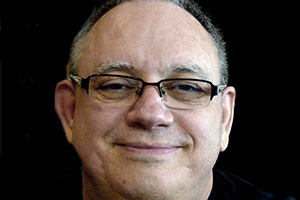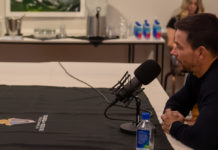
‘Getting Religion: Faith, Culture, and Politics from the Age of Eisenhower to the Era of Obama’
Author: Kenneth Woodward
Publisher: Convergent Books
Length: 484 pages
Release Date: Sept. 13, 2016
Click here to order a copy.
I know, as Catholics, we like spiritual self-help books, saint biographies, devotional and even fiction works. Of the books I’ve reviewed, some were so good that I labeled them “The Book.” In the case of Kenneth Woodward’s new book, “Getting Religion: Faith, Culture, and Politics from the Age of Eisenhower to the Era of Obama,” it’s true, this is THE Book.
Why?
Woodward was the religion editor of Newsweek Magazine for nearly 40 years until his retirement. He wrote about everything, he knew everyone, and he saw it all. This makes him unique.
If we look around today and wonder about the perceived growing immorality and even amorality, and the postmodern relativist culture collapsing, Woodward has the actual answers as to why.
America, he states, is a country founded upon both religious principles and religious liberty. This is what first made America exceptional in the history of the world.
Partly to blame is the perversion of the separation of Church and State. Since the beginning, the pressure was always on the state to avoid interfering with religious expression. Now, as Woodward rightly observes, that same separation has been perverted in an attempt to drive religion out of the public arena.
For this reason, Woodward begins with Eisenhower because in postwar America, religion was imbedded in the fabric of the culture and Eisenhower called upon God, not for political purposes, but to exhort greater morality as the country moved forward.

As the culture and economy marched on, Woodward reminds us of what he called Entrepreneurial religion or the religion of the great teleevangelists like Billy Graham. Though Woodward has great respect for Graham, the scandals that came from many of the other evangelists tarnished Christianity and drove a wedge between its teachings and the already skeptical.
Vatican II was monumental, seen by Americans as a “loosening” of hierarchical bonds. At the same time, faced with the deception and injustice of the Vietnam War, Americans began to grow skeptical and society took its first great steps at unraveling. Movement religion began to crop up as Catholic priests, nuns and sisters embraced social activism.
In the late ’60s and the early ’70s, events in Central and South America, combined with already existing unrest, caused stress in the institutional presence of the Church in those areas and Church teaching was perverted by Marxist philosophy. Working for the poor was translated into fighting for the poor against oppressive governments.
Liberation theology was born out of this tumultuous time and ran so counter to Church teaching that it began to equate the likes of the revolutionary, Che Guevara, with Jesus Christ. Liberation theology became an almost complete repudiation of the true Way and it was only the election of Pope John Paul II, formed entirely in a communist society, that brought an end to it.
Feminism rose out of the progressive morass as cultural forces pushed for gender equality. Though it did not affect the Church as much, it resulted in a domestication of Protestant denominations and the first female ministers and non-Catholic female priests resulted. Like Liberation theology, these movements were more about changing the Church to personal political views than to changing persons to the truth of Christ. The result was a tremendous dilution of Christian truth and practice.
To accelerate the secular slide, the New Age fell upon us with the advent of self-developmental psychology, largely from the work of Erik Erickson. Who needed God when you could fix yourself? Scientism made great secular inroads from theoretical physicists, cosmologists and others who concocted more elaborate, esoteric and ethereal theories about the origins of the universe to titillate the unsuspecting masses.
Woodward takes us through the unbridled cults like Heaven’s Gate in which its followers took their own lives in the expectation of retrieval by aliens ensconced in the Hale-Bopp comet, and Jim Jones and the Kool-aid drinkers in Guyana. Let us not forget Reverend Sun Myung Moon.
In politics, we’ve seen the rise of the “Religious Right” as a reaction to progressivism.
In the end, Woodward details the fracturing family, fading neighborhoods and the decline of the very fabric and foundation of American society. His is a dim view of the current generation — millennials — and their inability or unwillingness to make moral decisions.
Whoever reads this book will make for a more encouraging future as its truths and teachings are passed along. I can only say, buy the book, read the book, and then teach its lessons to the kids.





